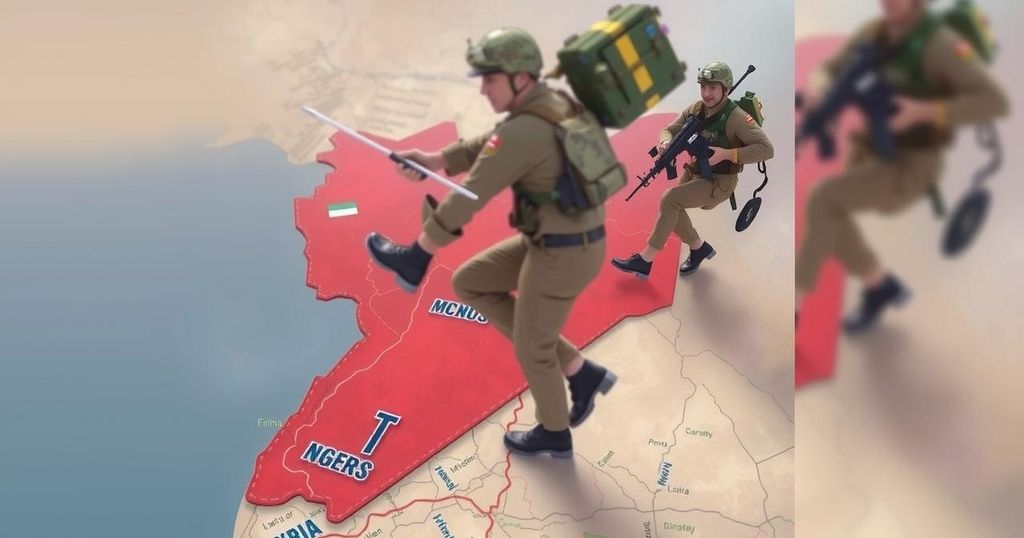Diplomatic Efforts in Jordan Amidst Syria’s Transition Following Assad’s Ouster
Diplomats from several Arab countries and the West convened in Jordan for discussions on establishing a peaceful transition in Syria after the ousting of President Bashar al-Assad. Russia adjusts its military presence, while concerns about extremist violence and regional stability continue. The situation remains fluid as international players push for a structured political process to prevent the collapse of vital institutions.
On Saturday, March 18, high-level discussions were held in Aqaba, Jordan, involving diplomats from eight Arab countries, as well as representatives from the United States and the European Union, following the recent toppling of President Bashar al-Assad by Islamist-led rebels. The meeting aimed to foster support for a peaceful transition in Syria, encouraging the involvement of the United Nations and the Arab League as essential contributors to the political process. This consensus underscores the objective to establish a governing framework reflective of the diverse Syrian populace through free and fair elections.
Concerning military operations, sources indicate that Russia is retracting its military presence in northern Syria, notably withdrawing from forward positions and the Alawite Mountains while maintaining control over its main bases in the nation, including the Hmeimim airbase and the Tartous naval facility. The implications of Assad’s downfall on these installations are under scrutiny as conflict dynamics shift.
In parallel, reports emerged about the Islamic State’s recent violent activities, claiming the lives of six shepherds in the Syrian desert, demonstrating lingering threats from extremist factions even amidst changing power structures. Meanwhile, Israel conducted strikes targeting military installations in Damascus, highlighting the ongoing tensions surrounding Syria’s turbulent geopolitical environment.
Moreover, there are concerns amongst regional leaders regarding the Islamist affiliations of the forces who have assumed power. Closer to home, Turkey announced plans to reopen its embassy in Damascus, signifying significant diplomatic shifts since the start of the Syrian conflict. Lastly, the UN’s special envoy called for preserving vital state institutions in Syria to prevent a complete collapse of governance following Assad’s ouster, indicating a delicate balance between chaos and potential recovery for the nation.
The discussion surrounding Syria’s future has intensified following the recent ouster of President Bashar al-Assad by Islamist-led rebel forces. This event marks a pivotal moment in the long-standing Syrian civil war, which has seen extensive foreign intervention and a complex interplay of local and international interests. The fall of Assad has created a power vacuum and escalated concerns regarding the stability of Syrian institutions, the resurgence of extremist groups like the Islamic State, and the geopolitical maneuvering by regional powers such as Turkey, Iran, and Russia. These dynamics have prompted urgent calls for a structured transition and negotiations to ensure an inclusive political process and the safeguarding of human rights.
In conclusion, the political and military landscapes in Syria are undergoing significant transformations following the recent ousting of President Bashar al-Assad. The diplomatic efforts spearheaded in Aqaba reflect a growing consensus among Arab nations and Western powers on the necessity of a peaceful transition backed by the United Nations. However, the persistence of extremist threats, regional concerns regarding the new power dynamics, and the need for international oversight are crucial elements that will shape Syria’s immediate future. The unfolding events not only highlight Syria’s internal complexities but also its impact on broader regional stability.
Original Source: www.france24.com




Post Comment